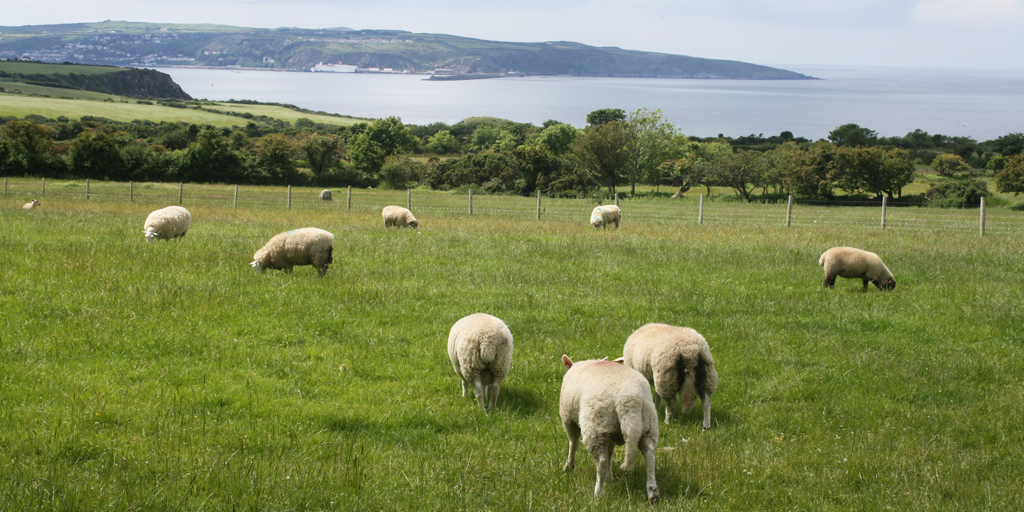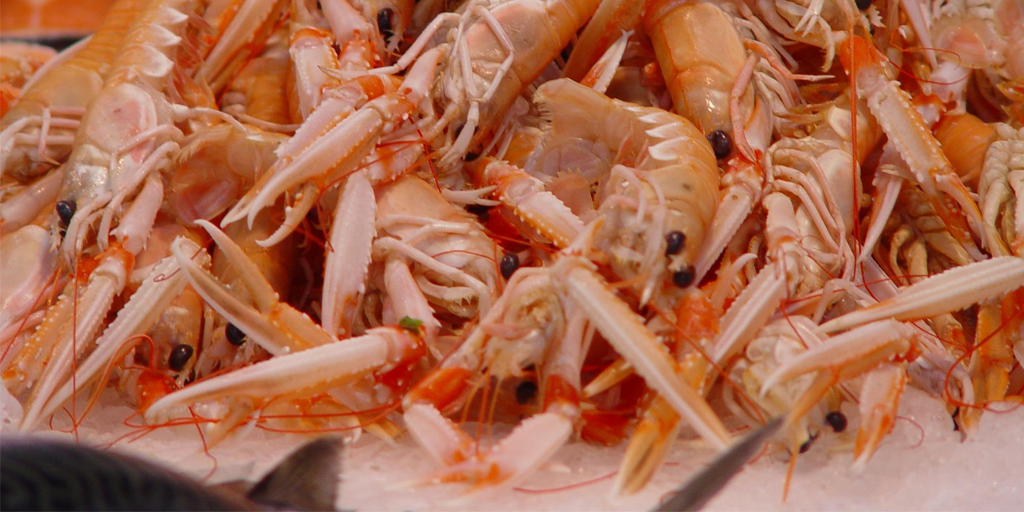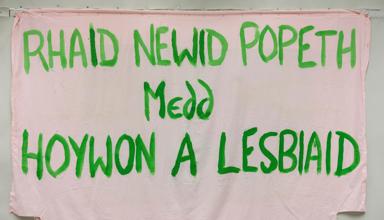Published 21/10/2016
| Last Updated 16/12/2024
Last week, the External Affairs and Additional Legislation Committee focused their attention on Agriculture and Fisheries and the implications for Wales following the UK’s decision to leave the EU.
You can watch the full session on
Senedd.TV.
As part of the session, Members and invited experts discussed their views on the priority areas for agriculture and fisheries in the negotiations on the UK’s withdrawal from the EU, and the challenges post-withdrawal.
You can follow the discussions on Twitter and
Facebook using
#BrexitinWales. To keep up to date on the work of the Committee follow
@SeneddEAAL.
Key Issues for Agriculture in Wales

Policies affecting Welsh farming and its food supply chain are determined largely by the EU through the
Common Agricultural Policy (CAP),
food safety and animal welfare legislation and also indirectly by the
World Trade Organisation rules.
The CAP is the EU’s mechanism for providing direct support to farmers, for protecting the countryside and for supporting the development of rural areas. The CAP runs for a seven-year period. Under the 2014 – 2020 round Wales receives around
€322 million of funding each year in direct payments to farmers in addition to €355m million for its 2014 – 2020 rural development programme.
The Welsh Government is
directly responsible for implementing the CAP in Wales (and is required to comply with the various EU Regulations which set the legal framework for the policy). For farmers eligible for the CAP this means the Welsh Government manages the direct payments they receive.
How would the UK withdraw from the CAP? Would it be phased in over time or stop immediately after the UK leaves?
The Welsh agricultural sector is heavily dependent on the current subsidies it receives under the CAP to make a profit. This is particularly the case in upland livestock farms. The Chancellor’s announcement that the UK Government will honour current levels of direct payments to farmers until 2020 has been welcomed by the farming unions.
However, some have called for clarity on how any fund distributed after withdrawal will be allocated to the Welsh Government and subsequently by the Welsh Government to Welsh farmers. Clarity on the levels and types of any funding available after 2020 has also been sought.
A key question for the industry will be whether the current levels of funding for agricultural support are maintained in the long-term. Experts have noted that the UK Treasury has expressed a strong preference for reducing direct income support to farmers in the past.
Wales will continue to be eligible to receive EU funding under the CAP, to participate in EU programmes and to access other forms of EU finance (for example through the European Investment Bank) until the UK formally leaves the EU.
What framework would be put in place within the UK to replace the CAP? How would this be established? Would it be on a UK or devolved level?
The extent to which there would be a UK agricultural policy or four separate policies within the UK is an issue that will need to be considered.
Most experts conclude that there is likely to be greater divergence in farm policy in the UK following withdrawal to take account of the differing nature of farming across the UK. The farming unions are currently consulting their members on options for future farming policies but some have outlined an initial preference for a UK wide framework within which the devolved administrations would have freedom to create their own policies.
Farming unions have also highlighted concerns about the capacity within the respective governments to draw up and design new agricultural policies. They highlight that in the past governments in the UK have been responsible for implementing the CAP but have not had to design a brand new system.
Other experts have said that there is likely to be a period of uncertainty in the industry which could deter farmers from making long-term improvements and investment decisions and therefore early clarity about the future direction of any policies will be important.
What arrangements could be envisaged for the trading of Welsh agricultural produce within the EU?
Many stakeholders and experts have raised their concerns over the need to secure access to market for UK agricultural produce. Approximately 60 to 65 per cent of the UK’s agri-food exports are exported to the EU and approximately 70 per cent of the UK’s food is imported from the EU. Food and drink exports from VAT registered Welsh businesses were £302m in 2014, the highest being dairy and eggs at 48% (£145.2m)
The average charge imposed by the EU on agricultural produce not granted preferential access to the European market is 12.2 per cent but this rises for some meat products to up to 67 per cent. However, if a successful free trade agreement is reached with the EU and it covered agricultural products and services then these tariff rates would not apply.
All stakeholders and experts highlight both potential risks and opportunities for the industry depending on the nature of any trade deals reached. There could also be varying impacts across sectors with both winners and losers in all scenarios, i.e. some agricultural produce is also more sensitive to trade and market conditions than others.
The NFU
commissioned a study on impacts of differing trade scenarios on the sector. The study concluded that some sectors such as the poultry sector could have opportunities to increase productivity and incomes under a free trade agreement with the EU whilst other sectors such as the livestock sector are likely to see reductions in income. The study also highlights that if imports from the EU become more expensive then there maybe opportunities for domestic suppliers to sell more produce locally.
What would happen to agriculture products with special designations such as Welsh Beef and Welsh Lamb labels?
Consideration will need to be given as to what happens to Welsh foods protected under the EU protected food names scheme, such as Welsh Lamb, Welsh Beef, Conwy Mussels and Carmarthen Ham. . The
Farm Scientist Network stated that the EU places great importance the protected food name scheme as a means of encouraging high quality value added food that can increase returns to farmers.
The Network also stated that the EU is likely to insist the UK protects protected food names in the UK market as part of any trade deal. In addition it concludes that in any case World Trade Organisation (WTO) rules would require the UK to offer at least minimum protection for the EU’s protected food names such as Parmesan Cheese and Parma Ham.
Under the WTO the EU is also required to offer minimum protection to any traditional products from third countries which are protected in their own domestic markets. The UK Government and devolved administrations may therefore need to consider putting a replacement protection mechanism in place for food producers in the UK. The process for applying for protected food name status is currently governed directly by European regulations, the protection of products with this status will lapse when the UK withdraws unless new measures are put in place.
Key Issues for Fisheries in Wales

The Welsh Government is responsible for the management and enforcement of sea fisheries in Wales, including implementation of the
Common Fisheries Policy (CFP).
The CFP sets out the rules that govern and manage fishing of certain stock within European seas. This includes including setting quotas for the amount of fish different fishing fleets are allowed to catch; setting some rules on the types of equipment used; setting out structures for Member States to manage their fisheries on a regional basis; managing the access of fleets to different waters and regulations aimed to ensure fisheries operate at sustainable levels.
Will the UK need a new fisheries management system?
The UK will need to design new systems for managing its fishing fleet outside the EU. Although fisheries issues are largely devolved, the UK’s quota has only been divided in accordance with the UK fisheries concordat; in other words, the allocations to the devolved nations are not enshrined in law. There will need to be discussions between the UK Government and devolved administrations about how a new system will work, who will be responsible for enforcement and, if a quota system is put in place by agreement with the EU, and, possibly, individual countries both within and outside the EU, how quota will be divided. There will also need to be consultation with the industry on any possible future options.
During the referendum debate, many believed that the UK’s share of CFP quota was insufficient and hoped fishing opportunities could increase outside the EU. In considering this issue the UK Government and devolved administrations would need to decide the extent to which increasing quota numbers would impact upon stock declines and recovery in UK waters. A number of fishing operators use their quota shares as collateral against bank loans for improving and repairing their vessels.
What decisions will need to be made in relation to allowing boats access to British waters and the access of British fishers to EU waters?
The UK has many sea borders with foreign countries. It has 6 borders in the North Sea alone.
In Welsh seas the main foreign border is with Ireland. In addition to access to all waters within the area from 12 nautical miles to 200 miles of all EU Member States the UK also benefits from access to the waters of several other countries such as Norway, Iceland and the Faroe Isles, through the EU’s bilateral agreements with these countries.
The UK Government and devolved administrations will therefore need to decide what, if any, access they want to EU waters and to the waters of these other countries. Given the migratory nature of many of the key fish stocks in UK waters such as herring and mackerel, it will need to decide whether joint management and quota sharing measures with these countries for these stocks are needed. The UK could opt to close all its fisheries within its territorial seas to fishing vessels from foreign fleets but would need to consider a number of factors in doing so.
If the UK Government and devolved administrations were to consider restricting access to any or all of its waters it would need to consider the issue of historic fishing rights. The UK administrations could choose to ignore these rights but countries where the UK fishing fleet also has its own historic fishing rights could retaliate. Many of these historic fishing rights date back to the Middle Ages and the UK Government will need to consider whether failure to respect these rights breaches international law.
Historical fishing rights are therefore likely to at least require some joint management with other countries, if not access for UK fishing operators to foreign waters. Failure to agree some joint management could also mean that countries over-exploit the stock in their waters, detrimentally affecting the numbers that subsequently migrate to UK waters.
What about access to the single market?
The UK exports a proportion of its annual catch to the EU. France is the UK’s largest export market. Figures released by the UK Government in April 2016 state that:
- 70 per cent of the UK’s total seafood exports, worth £900 million, went to other EU Member States; and
- 85 per cent of the UK shellfish exports, worth £360 million, went to the EU.
The UK Government and devolved administrations will need to consider the issue of access to the single market for seafood as part of trade negotiations. In addition, in deciding whether or not to restrict access to foreign fishing vessels to UK waters there may be a need to consider the potential impacts of this decision on any negotiations on access to the single market. The issue of shellfish exports will be particularly important to Wales given its reliance on these species.
What framework will be put in place within the UK to replace the European Maritime Fisheries fund?
The European Maritime Fisheries Fund is the fund that supports the delivery of the CFP and other maritime policies in the EU. It operates over a seven year period (2014 – 2020). Wales has been allocated €19.78 million of the UK’s €243 million total allocation.
As with the CAP, fisheries policy is an area where UK withdrawal would lead to a discontinuation of participation in the CFP and the European Maritime and Fisheries Fund. However it would continue to be an important factor in negotiated arrangements.
The UK Government and devolved administrations will need to consider what, if any, mechanisms they wish to introduce to replace the European Maritime Fisheries Fund and whether this will be done on a UK-wide or country-specific basis. Under the current European Maritime Fisheries Fund, each constituent country in the UK has designed its own programmes according to its own priorities. Support is provided for a range of activities including data gathering, fisheries enforcement measures and sustainable fishing practices. If the devolved administrations wish to develop their own financial support mechanisms, consideration may need to be given to whether funding for fisheries is ring fenced in some way or incorporated by the UK Government into its distribution of the block grant.
Next steps
This week on 17 October, the Committee considered the implications of Brexit for Wales in relation to public services.
You can read more about the implications of Brexit for Wales in the Research Paper published by the
National Assembly for Wales's EU Office and Research Service or catch-up on our previous blogs on
international law and trade,
developments to date and
EU funding, research and investment.
You can follow the discussions on Twitter and
Facebook using #BrexitinWales. To keep up to date on the work of the Committee follow
@SeneddEAAL.
 Policies affecting Welsh farming and its food supply chain are determined largely by the EU through the Common Agricultural Policy (CAP), food safety and animal welfare legislation and also indirectly by the World Trade Organisation rules.
The CAP is the EU’s mechanism for providing direct support to farmers, for protecting the countryside and for supporting the development of rural areas. The CAP runs for a seven-year period. Under the 2014 – 2020 round Wales receives around €322 million of funding each year in direct payments to farmers in addition to €355m million for its 2014 – 2020 rural development programme.
The Welsh Government is directly responsible for implementing the CAP in Wales (and is required to comply with the various EU Regulations which set the legal framework for the policy). For farmers eligible for the CAP this means the Welsh Government manages the direct payments they receive.
Policies affecting Welsh farming and its food supply chain are determined largely by the EU through the Common Agricultural Policy (CAP), food safety and animal welfare legislation and also indirectly by the World Trade Organisation rules.
The CAP is the EU’s mechanism for providing direct support to farmers, for protecting the countryside and for supporting the development of rural areas. The CAP runs for a seven-year period. Under the 2014 – 2020 round Wales receives around €322 million of funding each year in direct payments to farmers in addition to €355m million for its 2014 – 2020 rural development programme.
The Welsh Government is directly responsible for implementing the CAP in Wales (and is required to comply with the various EU Regulations which set the legal framework for the policy). For farmers eligible for the CAP this means the Welsh Government manages the direct payments they receive.
 The Welsh Government is responsible for the management and enforcement of sea fisheries in Wales, including implementation of the Common Fisheries Policy (CFP).
The CFP sets out the rules that govern and manage fishing of certain stock within European seas. This includes including setting quotas for the amount of fish different fishing fleets are allowed to catch; setting some rules on the types of equipment used; setting out structures for Member States to manage their fisheries on a regional basis; managing the access of fleets to different waters and regulations aimed to ensure fisheries operate at sustainable levels.
The Welsh Government is responsible for the management and enforcement of sea fisheries in Wales, including implementation of the Common Fisheries Policy (CFP).
The CFP sets out the rules that govern and manage fishing of certain stock within European seas. This includes including setting quotas for the amount of fish different fishing fleets are allowed to catch; setting some rules on the types of equipment used; setting out structures for Member States to manage their fisheries on a regional basis; managing the access of fleets to different waters and regulations aimed to ensure fisheries operate at sustainable levels.


